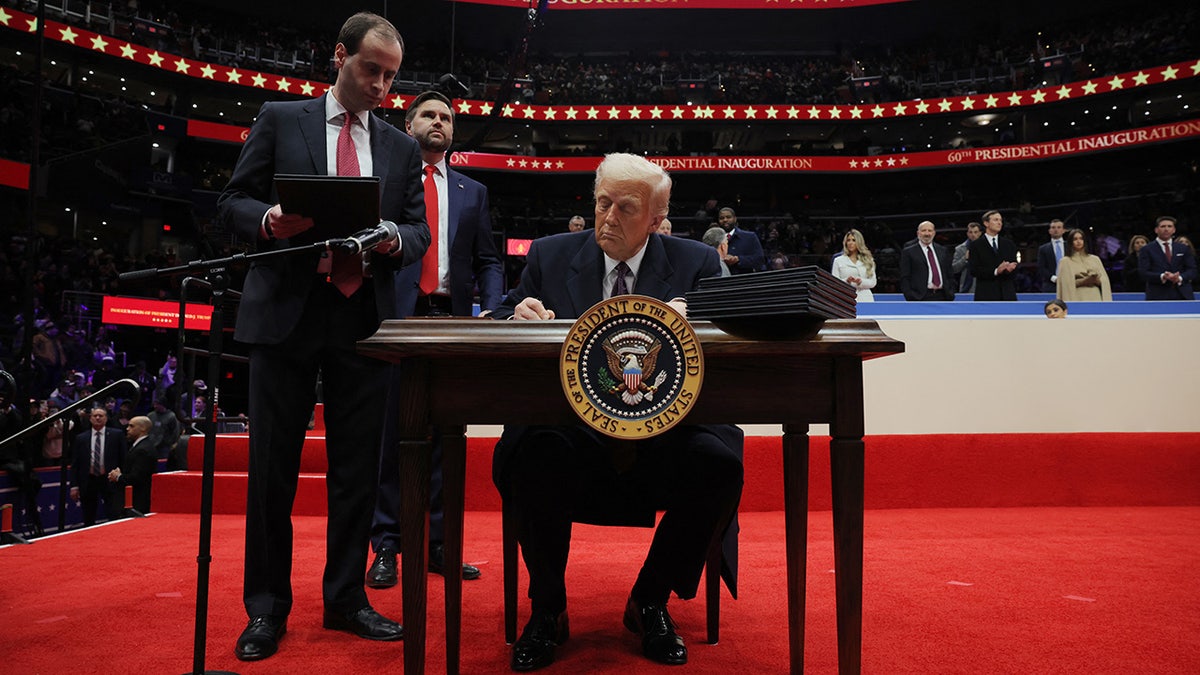Former President Donald Trump enacted the Laken Riley Act, marking the first legislation passed during his second term. This law mandates Immigration and Customs Enforcement (ICE) to detain undocumented immigrants accused of theft-related offenses or assaults on law enforcement. It also empowers states to sue the Department of Homeland Security for damages caused by illegal immigration.
The act is named in honor of Laken Riley, a nursing student tragically murdered by Jose Ibarra, an undocumented immigrant with prior arrests. Ibarra was sentenced to life imprisonment for Riley's death. Her family expressed gratitude for the law's passage and Trump's commitment to border security.

The legislation garnered bipartisan support in both the House and Senate, with a majority of Republicans and a significant number of Democrats voting in favor. Trump emphasized this bipartisan cooperation during the signing ceremony.
However, critics argue that the Laken Riley Act could lead to widespread detention, even for minor offenses. The American Civil Liberties Union expressed concerns about the potential for mass incarceration under the new law.

During his campaign, Trump pledged to strengthen immigration enforcement. He declared a national emergency at the southern border after his inauguration and implemented stricter asylum policies. Then-White House press secretary Karoline Leavitt reinforced the administration's stance on illegal immigration, warning of detention and deportation.

In addition to signing the Laken Riley Act, Trump announced an executive order to establish a migrant detention facility at Guantanamo Bay, Cuba, with a capacity of 30,000 individuals. This facility is intended to house individuals deemed dangerous criminals.
Comments(0)
Top Comments